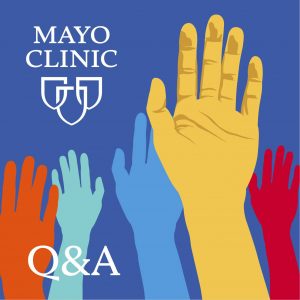-
Cardiovascular
Mayo Clinic Q&A podcast: Heart rhythm problems need attention

We’ve all experienced our heart rate change. For example, your heart rate increases when you exercise and slows when you sleep. But what if your heart rhythm changes when you aren't expecting it? That condition is known as heart arrhythmia.
Heart arrhythmias, also called heart rhythm problems, occur when the electrical impulses that coordinate your heartbeats don't work properly. This causes your heart to beat too fast, too slow or irregularly.
Arrhythmias may feel like a fluttering or racing heart, and they may be harmless. However, some heart arrhythmias may cause bothersome — sometimes even life-threatening — signs and symptoms.
It is important to find the cause, says Dr. Elijah Behr, a cardiologist at Mayo Clinic Healthcare in London. "It's very straightforward to investigate," says Dr. Behr. "And we have treatments that can prevent risk, prolong life, and can maintain quality of life for people."
Treatment can include medications, catheter procedures, implanted devices or surgery to control or eliminate fast, slow or irregular heartbeats. A heart-healthy lifestyle also can help prevent heart damage that can trigger certain heart arrhythmias.
On the Mayo Clinic Q&A podcast, Dr. Behr discusses the warning signs of heart arrhythmias and how they are diagnosed and treated.
Watch: Dr. Behr discuss heart rhythm problems.
For more information and all your COVID-19 coverage, go to the Mayo Clinic News Network and mayoclinic.org.








